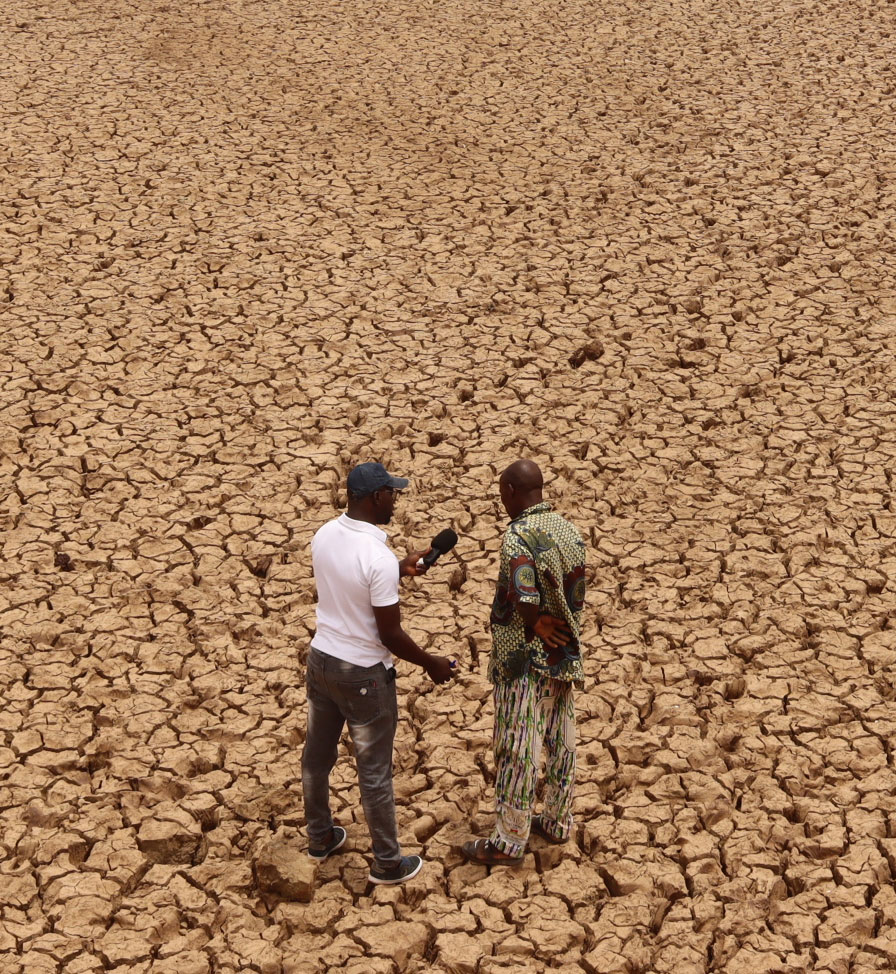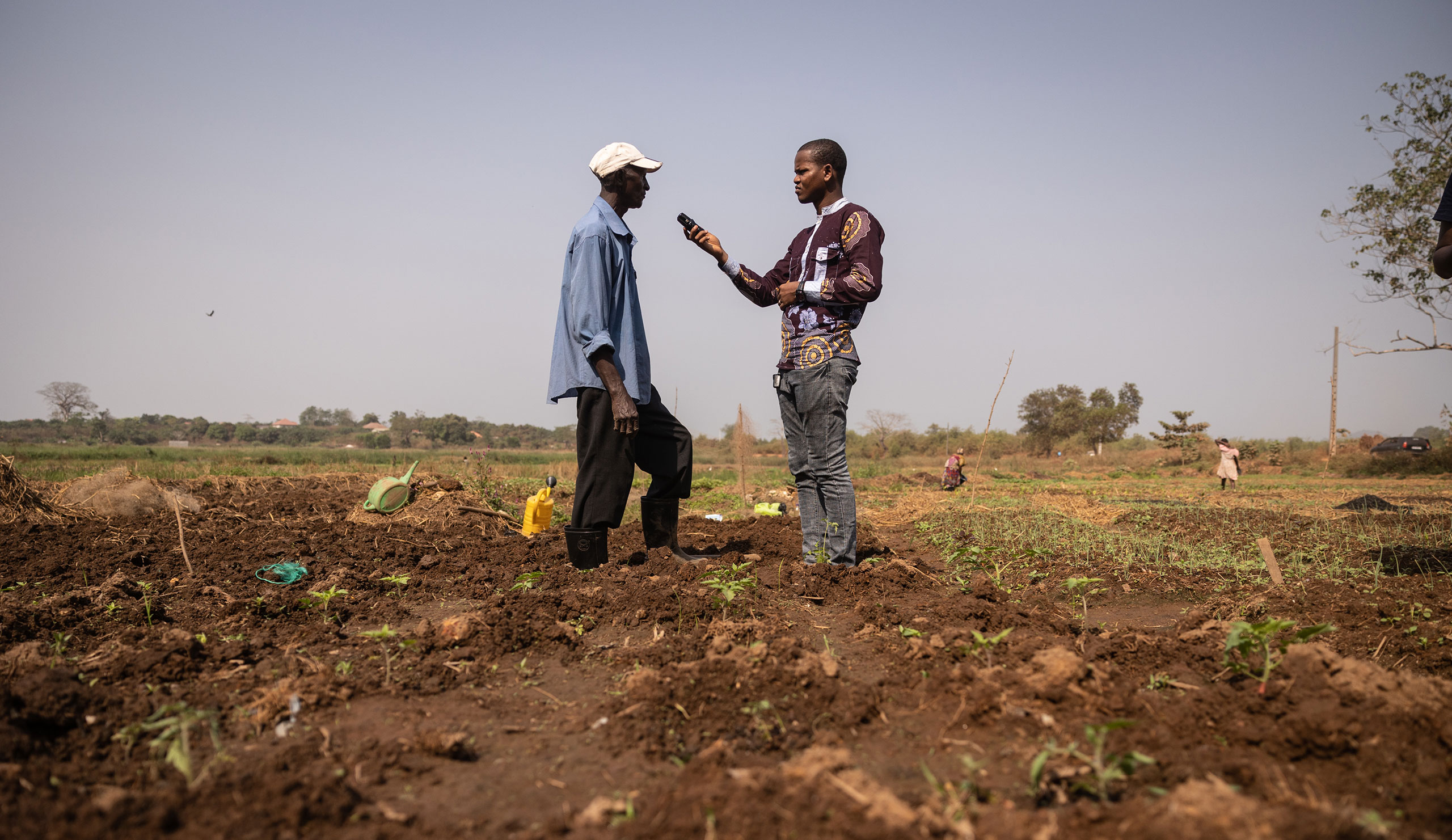As more people around the world begin to experience the impacts of climate change on their environment and their everyday lives, there has been a marked increase in media coverage of climate-related issues.

The tone has shifted: these days there is little debate about whether or not climate change is a man-made phenomenon or a cause for concern; now the alarm bells are ringing loud, as the evidence becomes very worrying with increasingly extreme weather events, causing hundreds of thousands of deaths and the displacements of millions of people
The media are right to sound the alarm. It’s time to act. However, citizens seem to aspire to a journalism that is less alarmist and more solution-oriented.
The Sahel is experiencing a rise in temperature that is twice as fast as the global average, causing severe droughts, crop failures, food shortages and exacerbating conflict and poverty. Our programmes in Burkina Faso, Mali and Niger explored and showcased solutions for climate change mitigation and adaptation, providing a platform for different perspectives and voices, including those of the worst-affected local communities. We also sought to hold decision-makers accountable, via panel discussions and reports questioning leaders’ policies, claims, and actions on climate change.
Meanwhile, our humanitarian programmes helped audiences cope with those facing the severest consequences of climate-related disasters, for example our partnership Tribal News Network in Pakistan provided populations with potentially lifesaving information on how to cope in the aftermath of devastating floods.
“LET’S TALK ENVIRONMENT” – MALI
Through its weekly programme “Parlons de l’environnement” (Let’s Talk Environment) Studio Tamani explores issues related to climate change and the environment, with a strong focus on local problems and local solutions which are relevant to the dayto- day realities of Malians. Topics covered in 2022 included income- generation opportunities in a green economy, challenges for large scale forest restoration, how the drying up of the Niger Delta is impacting agriculture and fish stocks, and the role of civil society actors in addressing climate change. The programme is broadcast in five local languages.
SCIENCE JOURNALISTS ADDRESSING THE CLIMATE EMERGENCY
During the first conference of French-speaking science journalists (www.cmjsf.org) held in Dakar, Senegal, from October 10 to 16 2022, 55 journalists from 21 countries discussed the media role and ways to cover the climate emergency. This event was organized by the African, French, Swiss and Quebec Networks of Francophone Journalists. Fondation Hirondelle, a conference partner, took charge of inviting and bringing four journalists from its media in the Sahel (Studio Tamani in Mali, Studio Kalangou in Niger, Studio Yafa in Burkina Faso) and Radio Ndeke Luka in the CAR. Their knowledge and skills were strengthened on topics such as producing scientific podcasts, scientific factchecking tools, as well as through field visits and reports. The Fondation Hirondelle director also came to share our experience at a workshop on the lessons of the Covid-19 pandemic.
CLIMATE AND JUSTICE
JusticeInfo.net, our news and analysis site specialising in coverage of international justice, published several reports on cases involving environmental destruction and climate change. This included legal action against fossil fuel companies over their harmful emissions and a Swiss government investigation into a businessman accused of having committed a war crime by pillaging Senegal’s forests. Another article explored the limitations of our current conception of Climate Justice, and whether the role of major corporations had been under-considered.
Our programmes in Burkina Faso, Mali and Niger explored and showcased solutions for climate change mitigation and adaptation.


